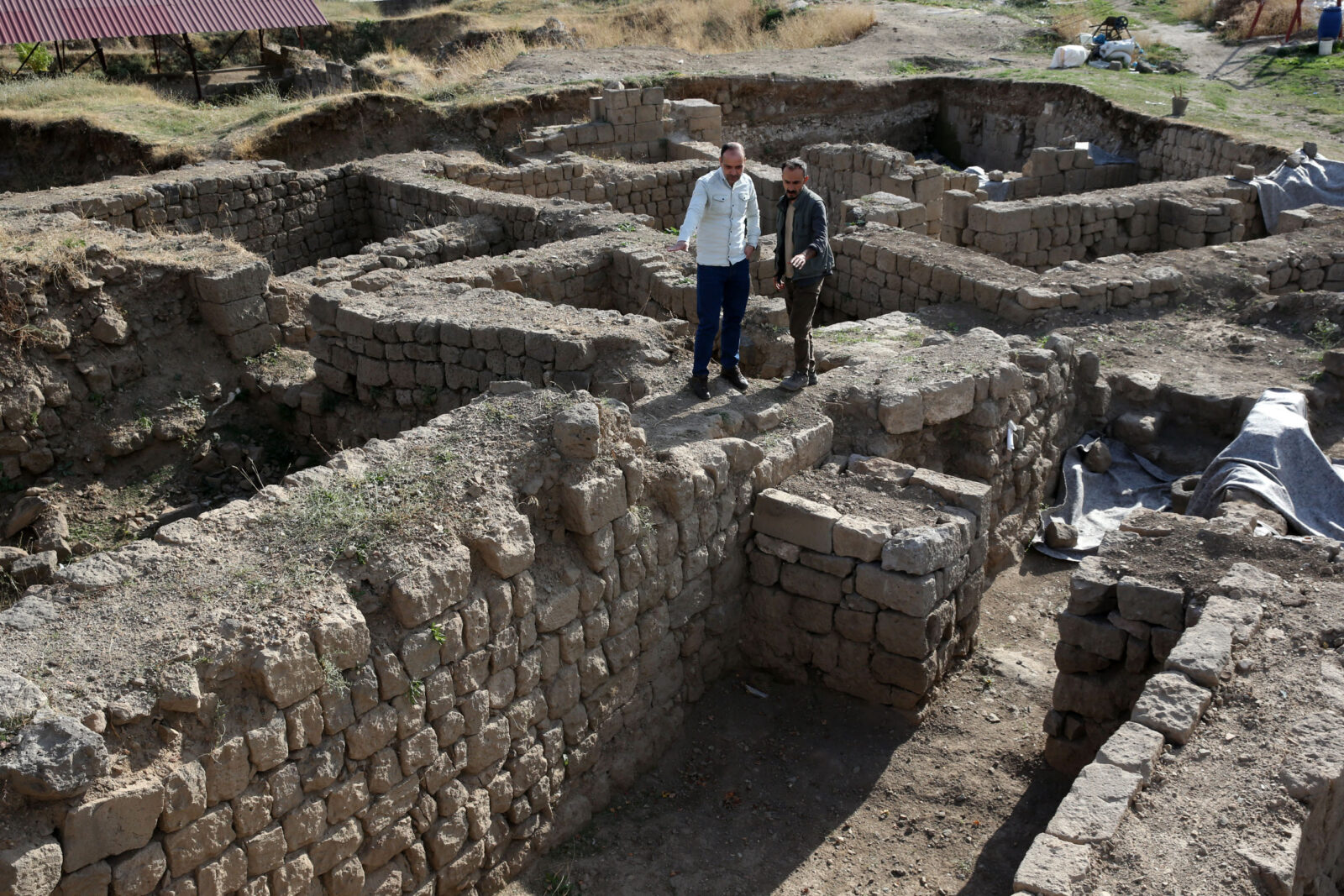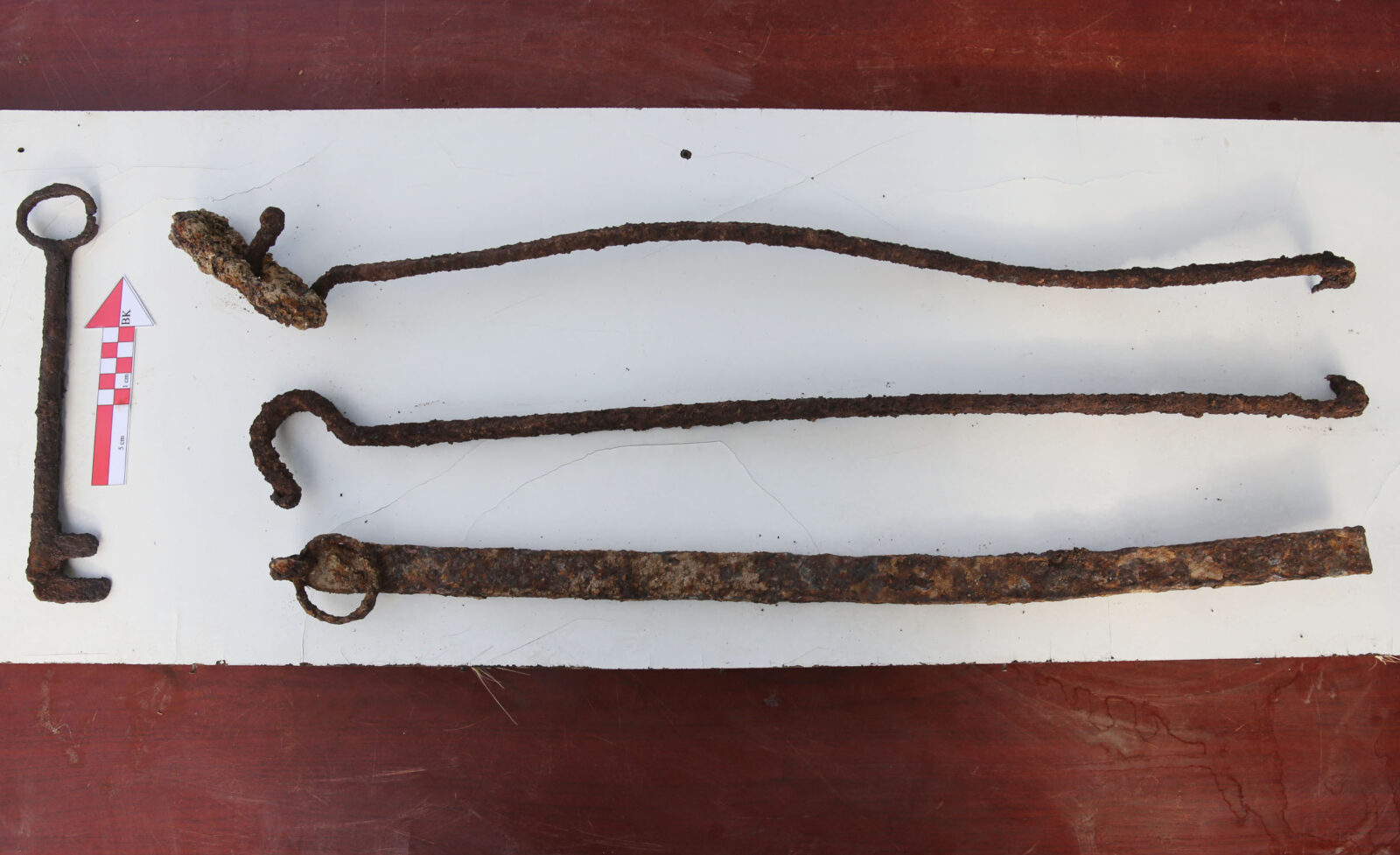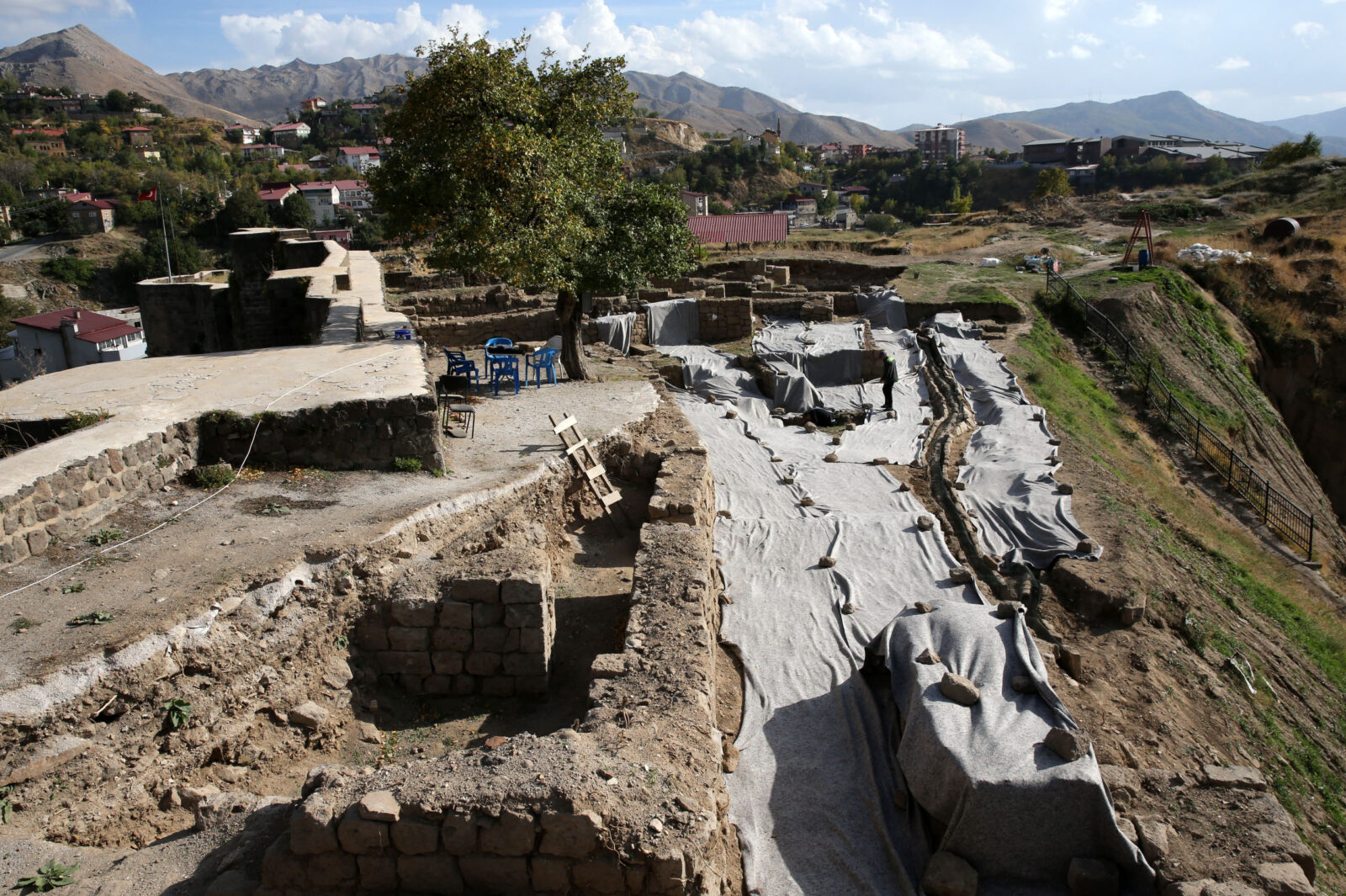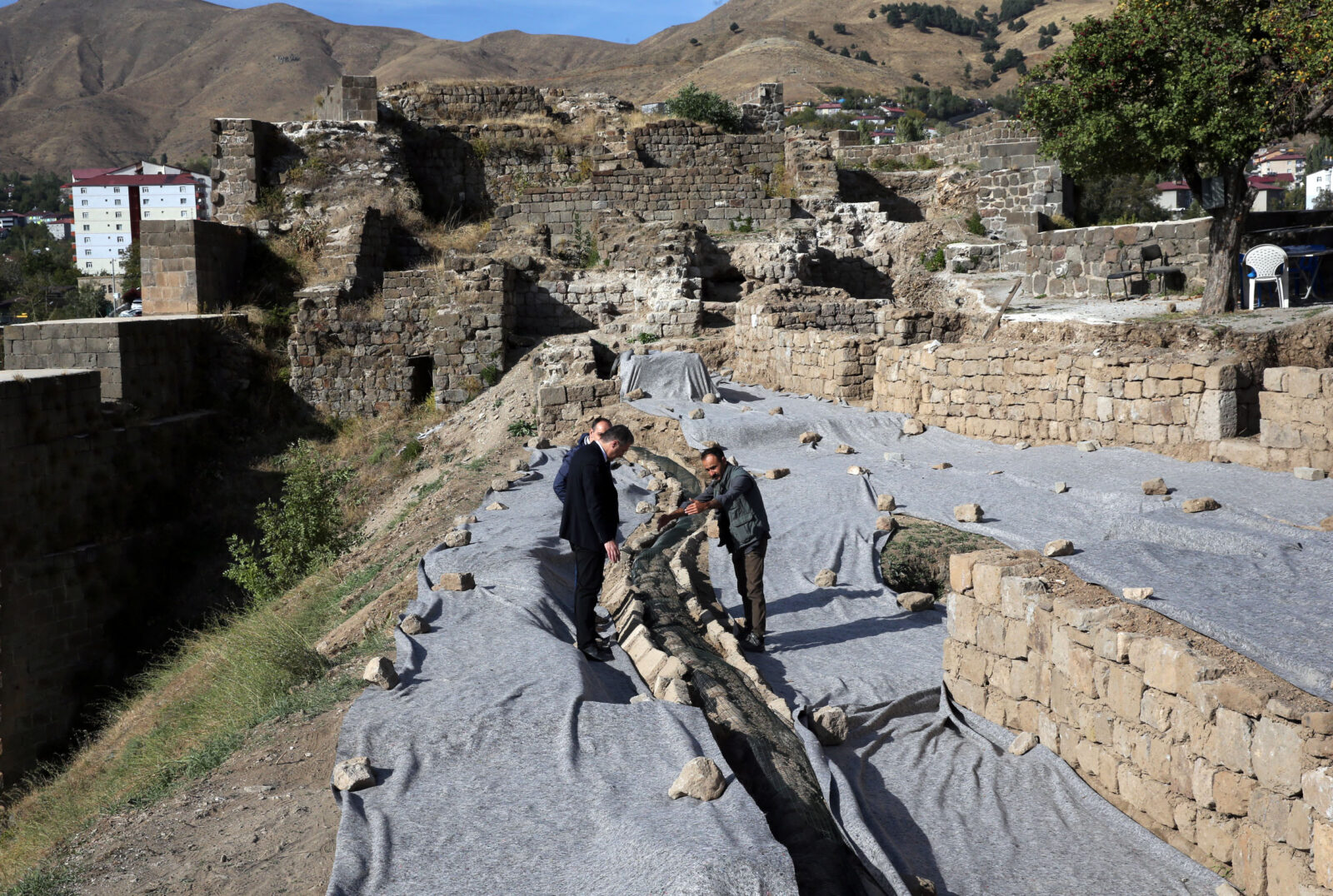
Archaeological excavations at Bitlis Castle have uncovered a key and iron fixtures believed to belong to the gate of a palace structure within the castle.
The discoveries, which add to the growing list of historical artifacts found at the site, were made under the supervision of the Ahlat Museum.

Bitlis Castle has been a strategic and historical hub for various civilizations throughout history. From the Ottoman Empire to earlier eras, the fortress has served as a crucial military and cultural center.
Excavations at the castle are now being conducted in a planned manner for the first time as part of a five-year program, revealing the depth of its historical importance.
So far, numerous valuable artifacts from the Ottoman period have been unearthed, including water pipes, coins, clay pipes, lamps and objects made of ceramics, glass, metal and bone. These finds are helping to piece together the daily life and infrastructure of the period.

In the final days of this year's excavations, researchers discovered a key and iron apparatus in the area near the military tower. Guided by Associate Professor Yunus Emre Karasu from the Art History Department at Bitlis Eren University, the excavation team believes these iron objects were used to secure the palace's gate.
The key was found in soil layers showing traces of a significant fire, which archival documents suggest occurred in the 1600s.
"The castle experienced a devastating fire in the 1650s, and we found the key five meters deep at the base of the tower," the research team revealed.
After being buried underground for centuries, the key and iron fixtures have become oxidized.
The excavation team plans to conduct conservation work to preserve these items before displaying them at the Bitlis Museum.

The castle played a vital role as a military base during the Ottoman Empire. However, its history extends much further back, with evidence suggesting it was a significant settlement area influenced by various civilizations.
This year’s findings, including a water pipe system, provide insights into how residents managed their water needs. Other objects, such as clay pipes, coins, and everyday items, point to the castle's role not just as a military outpost but also as a vibrant social and cultural hub.
Bitlis, known for its harsh winters, presents unique challenges for ongoing archaeological work. Despite these difficulties, the research team is committed to continuing their efforts without interruption.
Over the next four years, the excavations will persist, with all recovered artifacts undergoing detailed conservation. Plans are also underway to begin restoration projects for structures revealed during the digs.

In 2018, an inscription found on the walls of Bitlis Castle was deciphered and documented. The inscription, first mentioned in the travel notes of Lieutenant Colonel J. Shiel in 1838, had previously been too weathered to translate fully.
Notably, professor Kadir Pektas observed the inscription in 2004, but it wasn’t until 2018 that experts managed to decode it. The inscription, dated to the Islamic year 942 (1535-1536 .AD.), records a restoration ordered by Sultan Suleyman, son of the late Sultan Selim Shah.
Written in two lines of Thuluth script on a rectangular marble plaque, the inscription reads: “This high, noble, honorable, and blessed castle was ordered to be restored by the most exalted, most just, most formidable and most generous Sultan, the late and forgiven Sultan Selim Shah’s son, Sultan Suleyman, in the year 942 A.H.”
The recent findings at Bitlis Castle provide new insights into its storied past. As excavations continue, more secrets of this once-strategic military base will likely emerge, revealing its role across different eras and further enriching the historical tapestry of Türkiye.